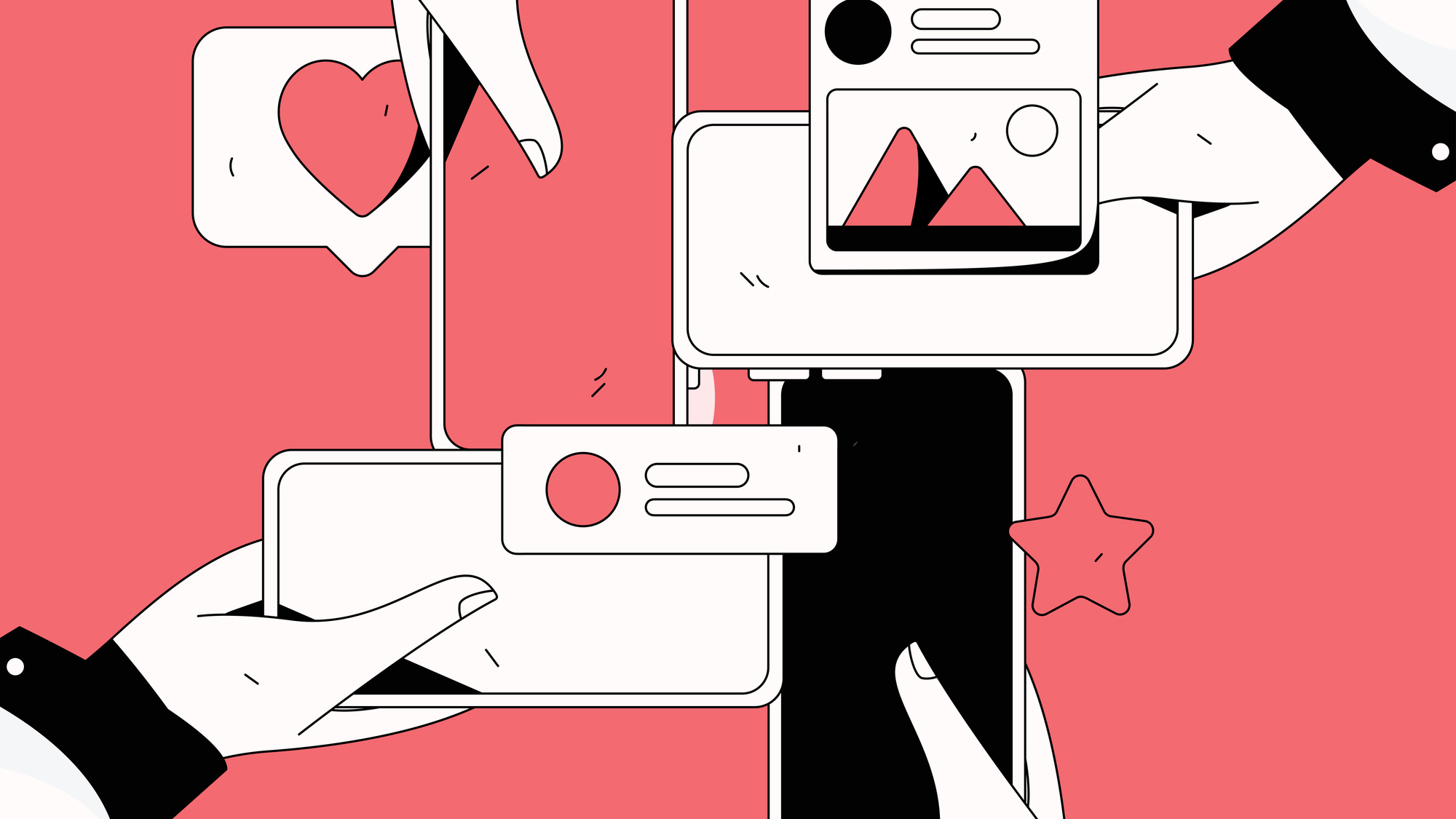Leaving X? Look out for these 5 social media red flags
Don't hop out of the frying pan and into the fire

X (formally Twitter) has been bleeding users for a long time – but the recent ban across Brazil has left more people than ever looking for an alternative.
There are a lot of social media platforms out there, new and old, but if you've been on X for a long time (remember the bluebird?), then you might not be aware of which sites to trust and which to avoid.
Picking a new social media platform has big privacy implications. We trust these sites with heaps of personal information in our posts and profiles, and this is just the sort of data that scammers and advertisers are hungry for. So, with that in mind, here are 5 privacy red flags to be aware of when shopping around for new social media.
Social media red flags
1. A weak privacy policy
Before you sign up for any social media platform, it's important to take a look at the site's privacy policy. This might sound unbearably boring, sure, but the good news is that spotting a shady privacy policy only takes a moment.
A privacy policy must be clear and transparent, effectively communicating what personal data will be collected, why, and if any third parties are involved. Most importantly, the privacy policy needs to state how your data will be protected.
If these details are missing – it's not a good sign. How do you know that the site has any measures in place to keep your identifiable data safe? How can you tell if the site is going to prioritize privacy over profit?
Keep these questions in mind as you comb through the policy – and keep an eye out for the following factors, too:
Are you a pro? Subscribe to our newsletter
Sign up to the TechRadar Pro newsletter to get all the top news, opinion, features and guidance your business needs to succeed!
- How long does the platform keep your personal data?
- What happens to your data if you delete your account?
- Are third-party apps involved? If so, what information do they have access to?
2. Automatic location data
A lot of today's social media platforms enable location data by default on posts, photos, and videos. It might not seem all that juicy at first glance, but when you pair location data with other details from your profile, it can be used to build a detailed profile about what you get up to online. From a privacy standpoint, this is less than ideal.
Location data builds up in the background as you go about your regular browsing. If you check in to a hotel, leave apps running in the background, or simply tag your locale in a photo, you're contributing to that user profile.
The platforms themselves have all sorts of reasonable excuses for gathering this data, often claiming that the collection and analysis of location data helps them to improve their services and provide users with personalized content.

It's not just online scammers who are hungry for location data – thieves and stalkers can use the information to track when you're out and about, leaving your house unattended.
However, the sheer quantity of collected data goes beyond what can be called reasonable.
In addition to being convenient for the platform, location data is a hot commodity for companies who want to better understand consumer behavior.
As a result, location data collected by social media platforms can end up being sold to third parties, like advertisers and analysis that'll pick apart thousands of posts to create targeted ads, or even passed to law enforcement.
3. Underwhelming privacy settings
Social media privacy settings give you some control over who can take a peek at what you post, your profile, and any personal information you choose to share. However, many of us choose not to customize these settings – and the default configurations usually aren't as private as they could be.
For example, when you sign up for a site like X or Facebook, your account will be public by default. This makes it easier for friends and family to find you, sure, but also gives scammers and hackers more to work with.
The cybercriminals behind phishing attacks, romance scams, and garden variety hacks can trawl through your public profile to learn about you from your posts, profile information, and network of friends.
So, whether you're sticking around on X or you've found a new digital home, be sure to head into those privacy settings and tweak them. Here are a few to prioritize:
- Who can view your profile? The fewer people who can access your profile, the more secure it is. Consider limiting your page to friends only – or even specific contacts.
- How can you be found? Some social media sites let users search for one another via search engines or through recommendations on other profiles. In terms of privacy, it's better to fly under the radar.
- What details are visible? It's possible to restrict your posts to your friends, and only make your name and profile picture visible to anyone else. However, there is a risk that a friend goes on to share one of your posts with their circle, and they may not have the same privacy-first settings set up, exposing your data to strangers.
- Is 2FA available? Two-factor authentication prevents hackers from taking over your profile by requiring you to enter an additional passcode, on top of your regular login credentials, when accessing your account.
4. Lots and lots of bots
We've all heard of bots getting up to no good online, but they can run riot on social media, too – and it's never a good sign for user privacy if a platform is infested with the little troublemakers.
Bots, as the name implies, are internet robots that have been instructed to do something specific. Good bots exist, like crawlers that help index sites so that they'll be picked up on search engines, and some sites even use chatbots to help with their customer service.
Social media bots are typically automated accounts that do their best to act like real people, but have been instructed to spread information – and it's usually disinformation (or fake news). Huge swathes of bots can make a big impact on social media platforms if they band together to accomplish something, including:
- Generating engagement
- Promoting individuals, companies, or movements
- Getting something to trend
- Spamming hashtags
- Bulk reposting and mass following
5. Data mining
Your data is what keeps social media platforms working – they need this information to serve up personalized recommendations and ads, and it’s how other users find and connect to you.
Personal data, like your name, where you live, and your email address is stuff you can hand over yourself, but things like your likes, reposts, follows, and more, can be even more valuable to the platform itself. They can share it with third-party partners (or sell it outright), use it in marketing campaigns, and even attempt to sway your established opinions.
Agree to those terms and conditions and you effectively agree to let the social media platform do what it wants with your data – and that's where data mining enters the picture.
Data mining digs into what people buy to anticipate what else they might purchase
Data mining involves using automated computers to trawl through large amounts of collected data to spot patterns that could be useful to the platform (and other companies) and predict future trends.
Data mining digs into what people buy to anticipate what else they might purchase, for example, and is a massive ethical quandary – after all, the fact that our day-to-day communications are being pulled apart for marketing purposes is incredibly invasive.
Fortunately, social media site have realised this, and understand that if users feel overly comoddified, they’ll post less, share less information, and generally shun the platform. This has led to the inclusion of specific clauses in social media privacy policies that regulate which information can be accessed by third parties, and how.
What's going on with X?
On Saturday 31st August, 2024, X was banned in Brazil. The decision was later upheld by Brazil's supreme court following X's owner, Elon Musk, deciding not to comply with local laws.
It's the latest development in a saga that stretches back to April, when Brazil's Supreme Court Justice, Alexandre de Moraes, ordered the suspension of various accounts that were, allegedly, spreading misinformation.
Moraes prompted the Supreme Court vote on Monday – and all five members of the Court voted in favor of the X ban. As a result, more than 21 million X users have been ousted from the platform.
A particularly divisive part of Moraes' ruling states that anyone who uses a VPN (virtual private network) to access the site will be fined 50,000 reais per day – for committing "technological subterfuge".
X alternatives
Ready to jump ship? If you're looking for a platform that works like X, but has a better all-around attitude to user privacy, here are my recommendations.
Mastodon
Mastodon is a decentralized and open-source platform made up of self-hosted servers that function like individual social networks. It's got all the microblogging features you’ll find on X – and each self-hosted server (called instances) has its own privacy policy, moderation rules, and code of conduct.
Bluesky
Like Mastodon, Bluesky is a decentralized and open-source alternative to X – and an invite-only platform. Created by Jack Dorsey, once CEO of X (then Twitter), Bluesky operates independently, meaning big companies have no influence over the platform.

River is a Tech Software Editor and VPN expert, helping take care of cybersecurity content on TechRadar, ranging from reviews, buying guides, and must-have VPN deals. River's expertise in the cybersecurity field opened their eyes to the startling amount of online snooping we accept into our daily lives. Now, River is committed to fighting for your right to digital privacy by shining a light on its biggest threats – and helping readers safeguard their data with the help of a VPN. Surfshark is River's favorite VPN, and they use it every day to keep their most sensitive details out of the hands of third-party trackers.

